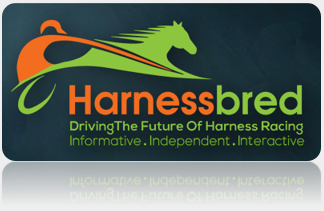 By Mac Henry
By Mac Henry
Southern Harness Inc will inherit the role of ‘super club’ in the south and is in line for a funding package approaching $3.7million for the new season.
The Invercargill based entity, which provides racing services for all 14 clubs south of the Waitaki, will receive the funds on behalf of its seven Southland and two Central Otago member clubs. Between them those nine clubs will stage 38 meetings.
Details of the package were outlined to harness racing players from throughout the region at a meeting in Invercargill during the week. Murray Swain and Kevin McNaught spoke for the working committee; Edward Rennell and Darrin Williams for Harness Racing New Zealand.
The 38 meetings is down two from last season while the five clubs in Eastern Otago will stage 30 meetings, down three. Rennell pointed out this was a case of removing two weaker meetings, usually because of a clash, to create one stronger one and therefore build field size and turnover. He said nine meetings were trimmed from the Auckland and Waikato region for the same reason.
Although there will be less meetings in the Southern Harness region, there will be a $350,000 increase in stakes. Swain and McNaught said allocation of those stakes would be one focus of the Southern Harness management team and the other
would be setting programmes to maximise the opportunities for the available horses to race more regularly
Apart from that, there would be no tampering with the sovereignty of individual clubs. Their assets, identity and local arrangements would remain intact, they said.
The bulk of the funding, which includes group and listed race subsidies, will be applied towards stakes. However, $380,000, $10,000 per raceday, will go towards expences. The top four fixtures, Diamond Day plus Northern Southland, Invercargill and Central Otago Cup days will attract the greatest stakes funding. The 21 days at the bottom of the heap will get enough to provide an average race stake of $7,700 with the minimum for any race $6,000.
How this will be split is not yet set in concrete. Which side of 60 percent the winner gets will depend on the outcome of a recommendation to pay two percent of the stake to each unpaid runner. For the lowest stake race, this would be $120, enough to pay the driver and get a bit back. There is also the possibility of HRNZ introducing a starter incentive which would add another $50.
Some trainers saw this as robbing winners to reward losers and wondered whether they would get their usual percentage. It was also suggested the bonus for 16 starts was a better option but the level of support for any of the proposals was unclear.
The $10,000 per day for operational expenses will increase a club’s budgeted income for a day to $24,000 at the bottom end, and $95,000 for the biggest day, which is at Omakau in January.
On Course turnover, sponsorship and admission are all major revenue contributors on Central Otago’s day in the sun in early January but are needed to cover significant New Zealand Racing Board charges for services and staffing of both the tote and Trackside television.

Approved By Dean Baring www.harnessbred.com
Driving The Future Of Harness Racing

